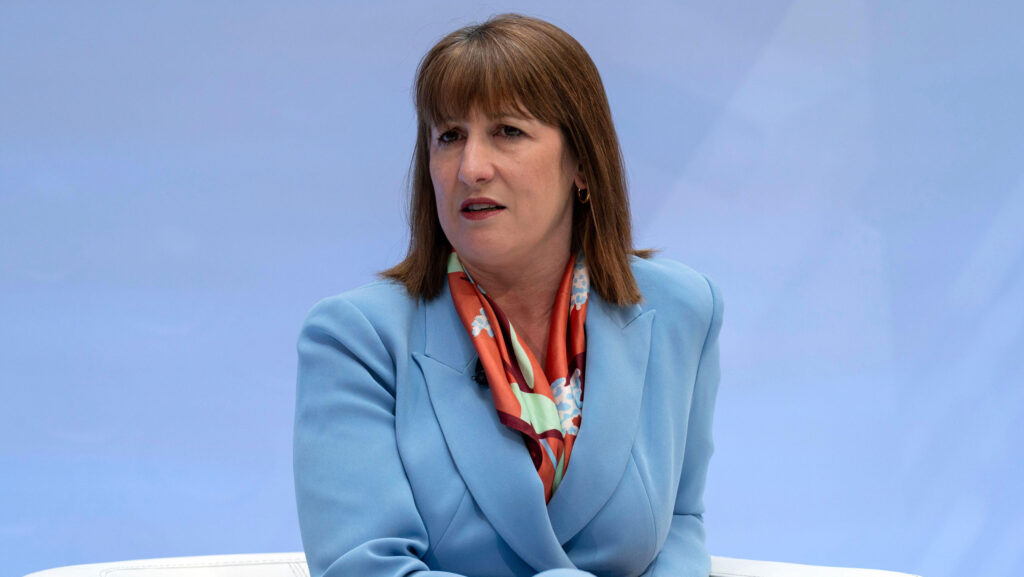This Week In Farming: US trade deal, milk, and marathons
 Chancellor Rachel Reeves in Washington © Associated Press/Alamy Stock Photo
Chancellor Rachel Reeves in Washington © Associated Press/Alamy Stock Photo Welcome to another edition of This Week in Farming, your regular round-up of the best Farmers Weekly content from the past seven days.
The weather appears to be improving into May, with higher temperatures and sunshine in the week ahead helping to keep the grass growing.
In this week’s markets (opens as PDF) it’s “up horn, down corn”, as deadweight beef pushes further above the £7/kg mark, while wheat prices struggle.
Now to the news…
Trade talks
Chancellor Rachel Reeves was over in Washington this week discussing a potential free-trade deal with the US in a bid to lower tariffs.
However, farming organisations are warning a deal could lead to lower standard food imports, which the CLA has said would be a “betrayal”.
FW editor Andrew Meredith writes in this week’s editorial about the dilemma the prime minister faces in pursuing a closer trading relationship with both the US and the EU.
Closer to home, the government is still getting to grips with its own finances and a spending review in June should provide some clarity on future departmental budgets.
The NFU has called for a UK-wide budget for agriculture of £5.6bn a year to support UK food security.
Whether the government will listen remains in doubt, with both the Treasury and Defra unwilling to provide a public response when questioned by Farmers Weekly.
Milk glut
Surging milk supplies this spring have left some processors struggling to find a home for excess milk.
Devon-based milk processor Crediton Dairy wrote to its suppliers calling on farmers to reduce the volume of residual litres where possible.
Muller has faced bigger issues, with some of its dairy farmers having to dump thousands of litres of fresh milk following a major breakdown at the Muller-owned Yew Tree Dairy site in Lancashire.
Despite greater milk volumes, the number of dairy farms continues to decline and a new study found that poor mental health played a key factor in UK dairy farmer exodus.
London’s calling
A number of farmers are due to descend on the capital this weekend – this time not to protest inheritance tax changes, but to raise money for rural charities at the London Marathon.
It will be an entirely different scene in Westminster on Tuesday 29 April though, with campaign group Save British Farming due to deliver a dramatic “call to arms”, warning the UK is sleepwalking into a national food security crisis.
The seeming lack of government interest in food production has also been highlighted in the NFU’s response to the now-closed Land Use Framework consultation.
Disease pressure
Further cases of foot-and-mouth disease have emerged on the Continent during April, which has led to the UK threat level being raised to “medium”.
Deputy livestock editor Shirley Macmillan has delved into the world of disinfectant and provides advice on best practices for livestock trailers to limit disease spread.
In Wales, a group of 15 farmers have come together to tackle bovine TB, discussing different practical changes on their farms.
Meanwhile, a Defra report has found that badger culling and vaccination in TB hotspots across low-risk areas of England has been linked with dramatic reductions in disease prevalence.
Finally, bluetongue restrictions could put a dampener on the agricultural show season, with farmers in the restricted zone already banned from taking livestock to the Royal Highland Show.
Buoyant beef
This week marked the return of Great British Beef Week, a national campaign backed by industry to highlight the hard work of the farmers who produce it and its exceptional quality and taste.
At market, beef has been the standout performer so far this year as prime cattle prices break record week after week.
This has resulted in an uplift for the whole beef sector with rearing calves selling for £500 plus at auction.
Higher prices have helped to lift revenue at livestock markets with sales up by £220m in 2024.
There could also be scope for further growth, with NFU Scotland highlighting that if Scottish retailers purchased a higher percentage of Scottish produce, it could provide an additional £500m for local farmers and crofters.
Best of the rest
FW’s Welsh correspondent Anne Dunn has looked into the nitrate vulnerable zone review, which covers Wales, and the continued objections by farming groups.
Agricultural contractors are looking to put up charges by almost 6% this year to cover costs, according to a National Association of Agricultural Contractors (NAAC) survey.
The machinery desk has pulled together a price guide to cover the NAAC figures in full.
In the Business section, Suzie Horne has looked at the land market with more potential sales on the horizon.
Louise Impey from the FW arable desk looks at the future of agri-environment schemes in England, following the sudden closure of the Sustainable Farming Incentive.
FW Podcast and in-person
Don’t forget to tune in to the FW Podcast, with Johann Tasker, Louise Impey and Hugh Broom.
You’ll find it anywhere you listen to podcasts, or free to listen to on the FW website.
Transition Live 2025 is now less than two weeks away, and this week’s magazine includes a special Transition supplement with lots more information about the big day.
Get your tickets now to come along.

